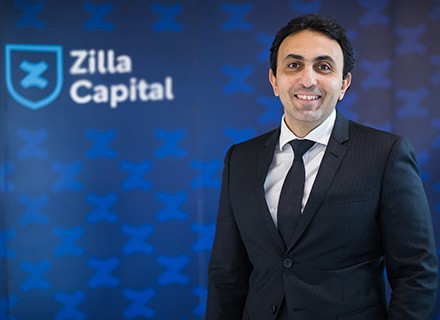Zilla Capital is a full-fledged investment services company that provides financial advisory, asset management, private equity, and non-banking financial services all over the MENA Region. The company provides clients and partners with strategic advice within several structural and operational domains. It leverages Executive Partners’ extensive experience so that their clients can conduct business in Egypt, the MENA Region, and Africa. The company assists clients in achieving their strategic goals by offering comprehensive and integrated financial solutions that can cater to their specialized needs. It was recently awarded the ‘Fastest Growing Investment Bank – Egypt’ at International Finance Awards 2022.
During an interaction with International Finance, Wael Ziada, Managing Partner of the company said, “I agree with many that the Feds keeps getting it wrong, but the world monetary powerhouse cannot afford to do nothing when inflation is soaring and unfortunately it doesn’t have many tools when it comes to curbing inflation. Aside from the erroneous magnitude and timing of the rate hikes, the Feds has chosen to ignore that the financial markets have changed over the past decades since the Volcker’s playbook, and that’s a big mistake, reusing it now can be dangerous”.
Wael Ziada also shared his views about the current situation of the global financial markets, monetary policies and much more.
He said, “The Feds’ tightening is dragging major economies into a currency war, which keep testing the limits of the global financial markets and exposing its major vulnerabilities. Moreover, the Ukraine war and COVID are two very significant events and dealing with their repercussions will require a degree of coordination between the fiscal and monetary policies that few countries are capable of. This is the result of years of no real policy practice with the near-death of one or both policies at most governments. What happened few months ago in the British bond market (Gilts) and the sterling (GBP) is a case in a point. It was another Lehman moment that cost the chancellor his job.”
What’s Next
Talking about inflation, Wael Ziada stated that inflation will not respond as expected to the upcoming rate hikes and this heavy monetary artillery used by central banks will bring the roof down soon, and something big will pop.
“At an average of 4-5% global policy rates, recession will be induced, inflation will cool down (but won’t fade), sovereign defaults will occur (Brazil, Turkey, and South Africa top the list) and issuers credit rating will deteriorate raising costs of borrowing further and shutting down global bond markets for many emerging economies which will further accelerate this race to the bottom. Policy makers will have then added two other problems to their inflation problem: unemployment and recession,” he said.
According to Wael Ziada the impact of the monetary tightening won’t appear on corporate earnings before next quarter, and analysts then will downgrade their forecasts.
A recent report by Fitch expected some 20-25% cut in 2023 earnings for the S&P500 under the 4-5% policy rate scenarios.
“This means that the adjusted 2023 PE of the index is actually close to 23.0x. This is very high compared to the market’s PE during the previous five monetary-induced recessions when the PE averaged 12.0x at the bottom. It’s fair to argue that the world is a different place and that the earning drivers of the index are not the same as two decades ago and that the monetary steroids the world has been ingesting is likely to make the growth curve steeper than previous cycles…etc and hence imply higher PE at the down cycle,” he added.
Wael Ziada concluded by saying that he agrees to all of that, but it would still leave the markets with at least another 20-30% to fall.

